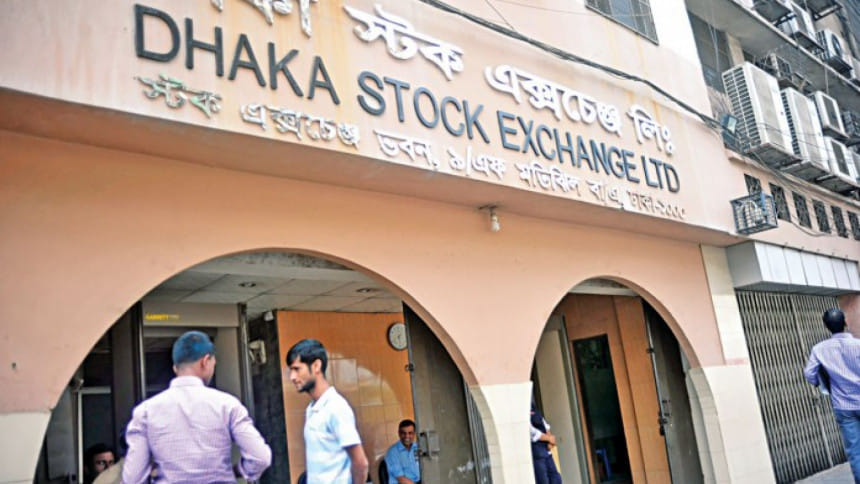Regulators should work together for a stable stock market: Analysts

Bangladesh Bank, the Bangladesh Securities and Exchange Commission (BSEC) and National Board of Revenue (NBR) should work together for the betterment of the domestic stock market so that it can stand as the main source of long-term funding for local industries, various analysts said yesterday.
Their comments came at a workshop, styled "Economic Policy Triangle: Inter Relationship among Fiscal, Monetary and Capital Market Policies", jointly organised by the Bangladesh Academy for Securities Markets and Capital Market Journalists' Forum.
Banks play a vital role in the economy but the stock market could also be a major source of long-term finance, said Shaikh Shamsuddin Ahmed, a commissioner of the BSEC. "So, the central bank should form stock market friendly policies," he said, adding that all regulators should work together in this regard.
About the recent drop in the stock market, the BSEC commissioner said local media had traced two reasons behind the decline. One is the war between Russia and Ukraine while the other is the adjustment of negative equity of the intermediaries.
On February 27, the DSEX, the benchmark index of the Dhaka Stock Exchange, plummeted by 163 points, or 2.38 per cent, to 6,676. This was the steepest single-day plunge since February 7 last year.
"However, it was not logical for the market to fall due to the war as it has few links with Bangladesh," Ahmed said.
Meanwhile, the other reason of adjustment of negative equity from intermediaries is also not true as the regulator has already extended the time till December 31, 2023, he added.
In 2010, the intermediaries provided margin loans to investors but when their share price eroded, the stock remained unsold as the stock value was lower than the loan amount. This is called negative equity.
In 2015, the commission ordered the intermediaries to adjust their negative equity. Later, the BSEC extended the deadline seven times in response to requests from the intermediaries.
"If needed, the time could be extended further," Ahmed said, adding the market regulator will not take any decision that could have an adverse effect on general investors.
"So, investors should not be concerned about the adjustment of negative equity."
Prof Mohammed Helal Uddin, director of research at the Centre on Integrated Rural Development for Asia and the Pacific (Cirdap), echoed the same, saying the two reasons were not logical for the recent drop. "Bangladesh's economy grew much higher but our stock market is still not aligned with it," he said.
"But the central bank took some steps that were not suitable for the stock market. It has taken the steps probably with the fear of 2010," Uddin added. So, all the regulators should coordinate their efforts for the betterment of the local financial sector.
"If the earnings of listed companies rise, then their share prices may also rise and there is nothing wrong with that."
Uddin criticised the companies that get nods to go for initial public offerings, saying that 80 per cent of these companies are not performing well.
"Some listed firms are investing in the stock market to make fast money and so, their activities should be monitored closely as such a company's earnings may fall anytime," said Abu Ahmed, a stock market analyst.

 For all latest news, follow The Daily Star's Google News channel.
For all latest news, follow The Daily Star's Google News channel. 



Comments